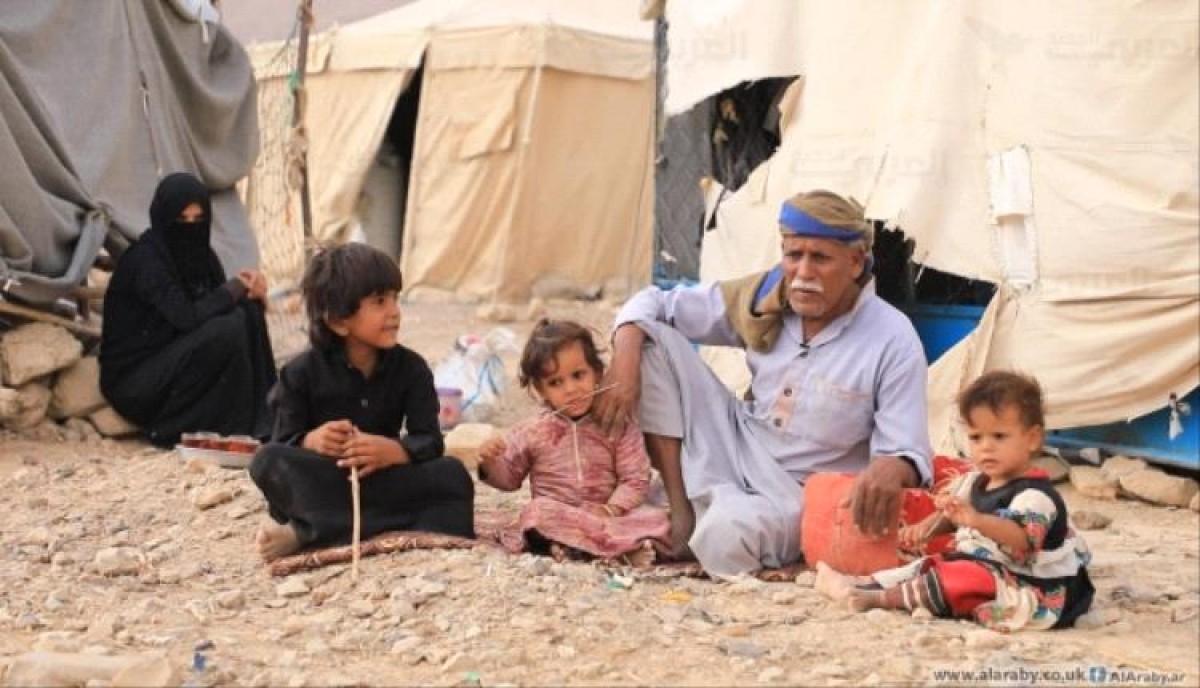UN report: 85% of the displaced are unable to provide for their needs


Recent data distributed by the United Nations High Commissioner for Refugees revealed that entire families in Yemen face hunger every day, and that millions of internally displaced people face deteriorating conditions with the worsening crisis that the country has been experiencing for ten years and the impact of climate change.
The UN update charts The data collected from more than 47,000 families in the first half of this year provides details about the suffering of internally displaced people, returnees, and members of the host community.< br />Among the families included in the survey, a large number of whom reside in official and informal displacement sites, it appeared that 85 percent of these families are unable to meet their daily food needs, and many of them have resorted to “harsh mechanisms” to cope with the difficult conditions, Such as reducing meal sizes or skipping meals completely.
The Commission described the results of the statistics as depicting the harsh reality; “Entire families face hunger every day.” She pointed out another very important issue, but which does not receive attention, which is the widespread lack of civil documents among displaced families. More than 51 percent of the families surveyed have at least one child without a birth certificate, and 70 percent have family members without national ID cards.
She showed that without these crucial documents, families become isolated. Their access to basic services, education and basic rights, which exacerbates their vulnerability and hinders their ability to rebuild their lives.
The UNHCR confirmed that despite the efforts made to improve living conditions, the majority of displaced families do not feel safe when returning to their homes due to... Persistent instability, lack of livelihood opportunities and risks such as landmines, plunging it into a spiral of protracted displacement.
Severe challenges
UN data say that Yemen - which remains one of the worst humanitarian crises in the world - faces severe challenges Even as attention turns to other global emergencies; Currently, 18.2 million people in the country, including 4.5 million displaced people, need urgent humanitarian assistance. This includes more than 60,000 refugees and asylum seekers, most of them from Somalia and Ethiopia.
The UNHCR stressed the need for more systematic and sustainable global support for countries such as Yemen, which is one of the countries in the world most affected by climate change, and is also among the countries least prepared to mitigate it. From the effects of severe weather conditions and disasters resulting from climate change or adaptation to it, as these disasters have become more frequent.
The Commission recalled that the recent catastrophic floods in the Malhan District of Al Mahwit Governorate, which resulted from heavy rains, led to the collapse of three dams and destroyed Entire communities. Over the past month, floods have claimed the lives of 97 people and injured many others, affecting more than 56,000 homes in 20 governorates and displacing more than a thousand families.
The most affected areas include Al Hudaydah, Hajjah, Al Taweelah, and Ma’rib, and damaged roads are isolating affected areas and hampering rescue efforts.
The Commission notes that this disaster has exacerbated the suffering of millions, as vital infrastructure has been destroyed, shelters have been swept away, and agricultural lands have been submerged. Unexploded ordnance that was discovered due to the floods also poses additional threats to civilians and workers in The humanitarian field.